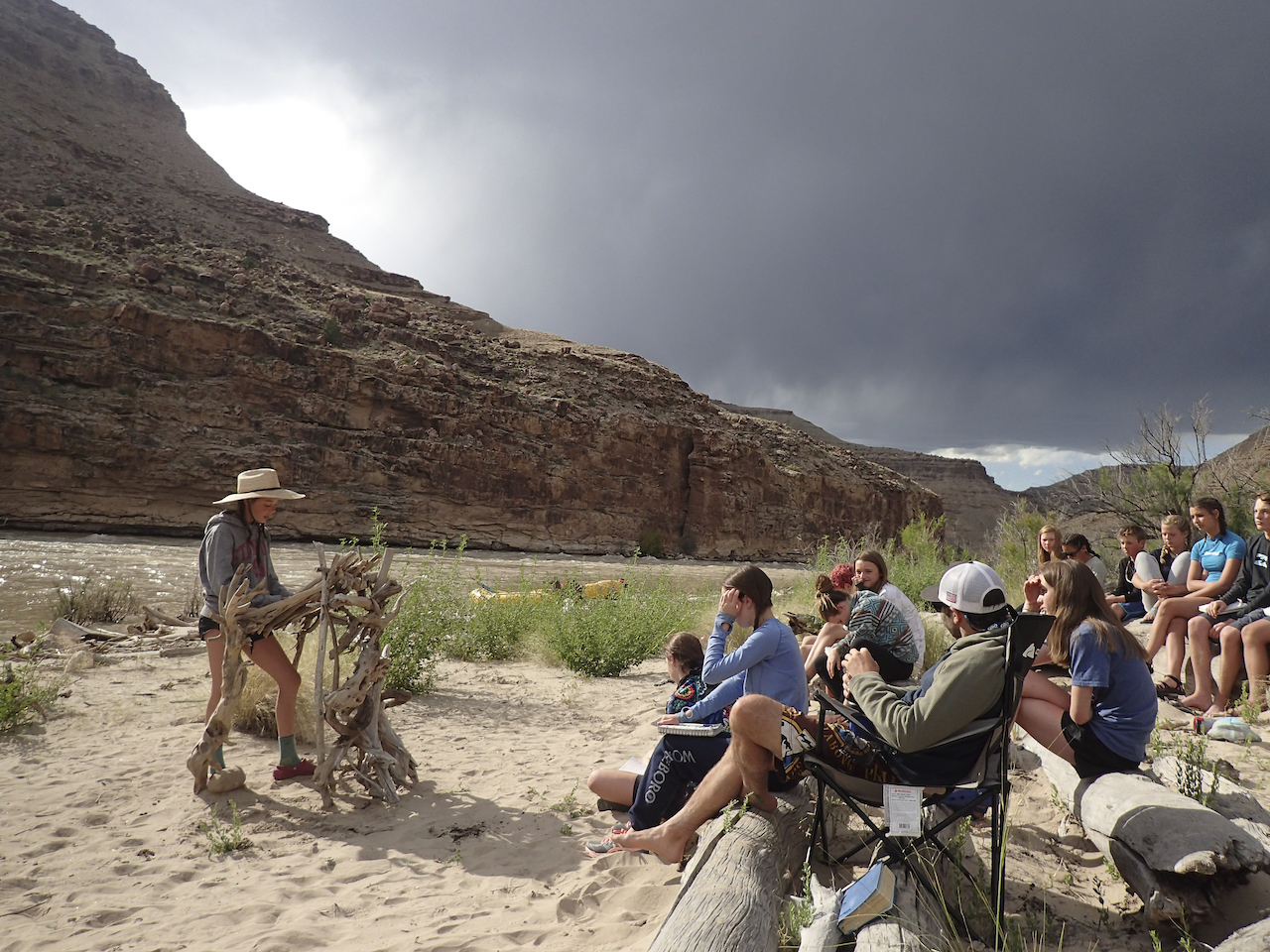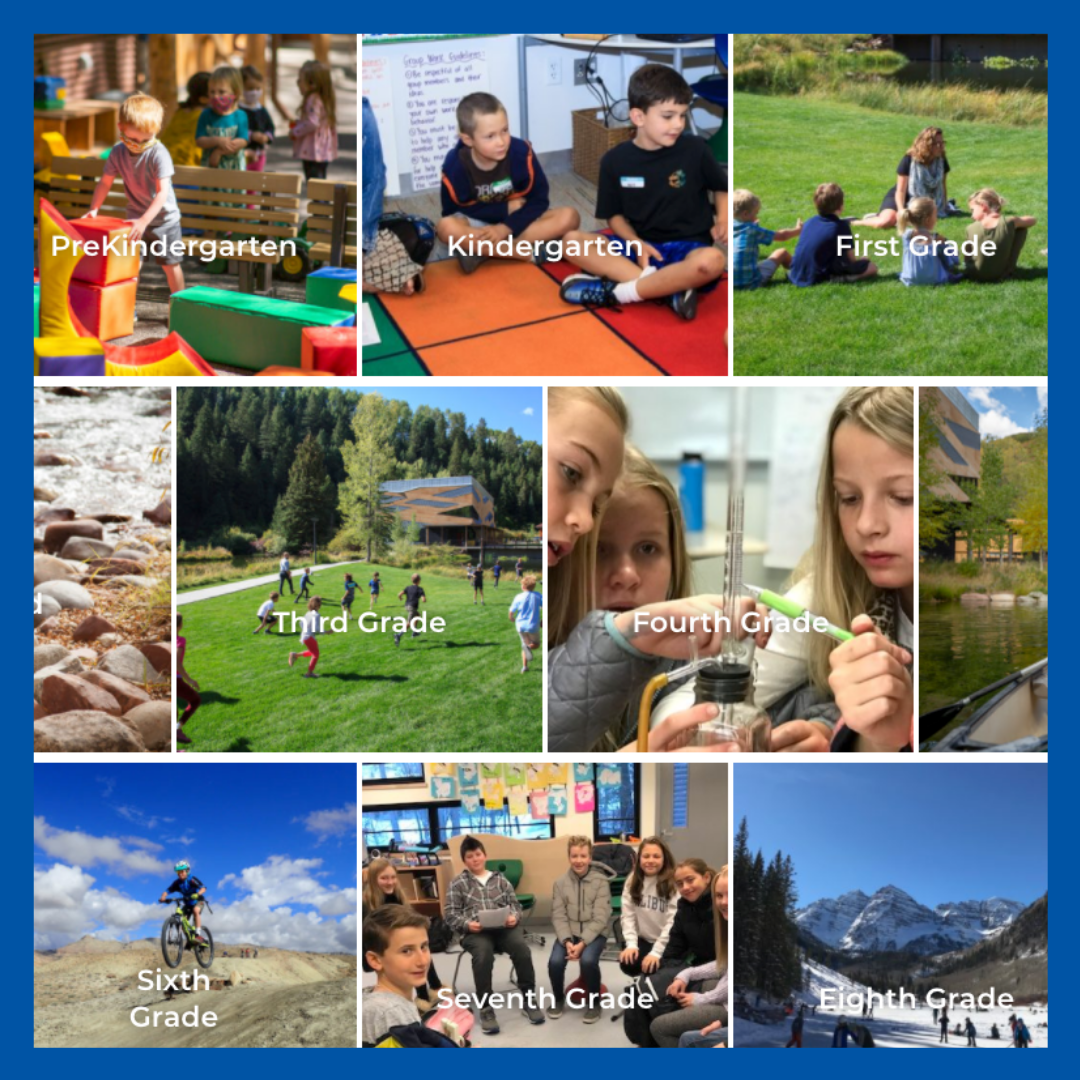Language Arts & English
As a result of an Aspen Country Day School education, students will:
- become life-long readers who read a variety of texts to build an understanding of themselves, the world, and the many dimensions of the human experience
- be prepared to engage in a variety of writing experiences demonstrating creativity, clarity, and the ability to communicate effectively
- be confident, effective, and clear in formal and informal speaking
- use speaking and listening skills to participate responsively and work responsibly in conjunction with others
Above: Eighth Graders draft the speeches they will deliver at graduation, then practice them on their final Outdoor Education expedition, a week-long rafting trip on the Green River. Over the years at Aspen Country Day School, children learn to become confident public speakers and presenters. This is an important graduate outcome that prepares them for the journey ahead.
The language arts curriculum is thoughtfully designed to develop the cornerstones of all learning: listening, speaking, reading, and writing. Students use these skills in every discipline at school as well as in everyday life outside of ACDS. In addition to acquiring these basic skills, we want our students to have broader experiences that will foster depth in their growth so they are prepared for the journey ahead.
The language arts program is designed to achieve a variety of goals: appreciation of literature and the human experience; reading fiction or non-fiction in order to learn; writing clearly and succinctly; ability to express oneself orally and via writing; thinking deeply and critically; valuing the role process plays in achieving product; utilizing creativity. The language arts program balances the need for rich literary content, both fiction and nonfiction, with the need to develop the discrete foundational skills to become an effective reader and writer.

In Lower School, we have adopted the “Daily 5” organizational framework to ensure students engage in meaningful experiences in each domain of language arts. We use a developmental model to teach reading which incorporates elements of both a phonics-based program as well as a holistic approach. Students have numerous opportunities to practice both formal and informal speaking and listening.
In Sixth through Eighth Grades, the reading focus progresses to a more in-depth analysis of both fiction and nonfiction texts. Students develop their ability to read for inference and make purposeful connections beyond the text, either to their own experience or the broader world. Students also cultivate their ability to lead class discussions, and by Eighth Grade most literature discussions are facilitated by students. This practice in student-led inquiry serves graduates well when they move on to high school and college seminars. Students dissect literature by progressing from the literal to the abstract by systematically asking three questions: What happens? Why does it happen? What does it mean?

